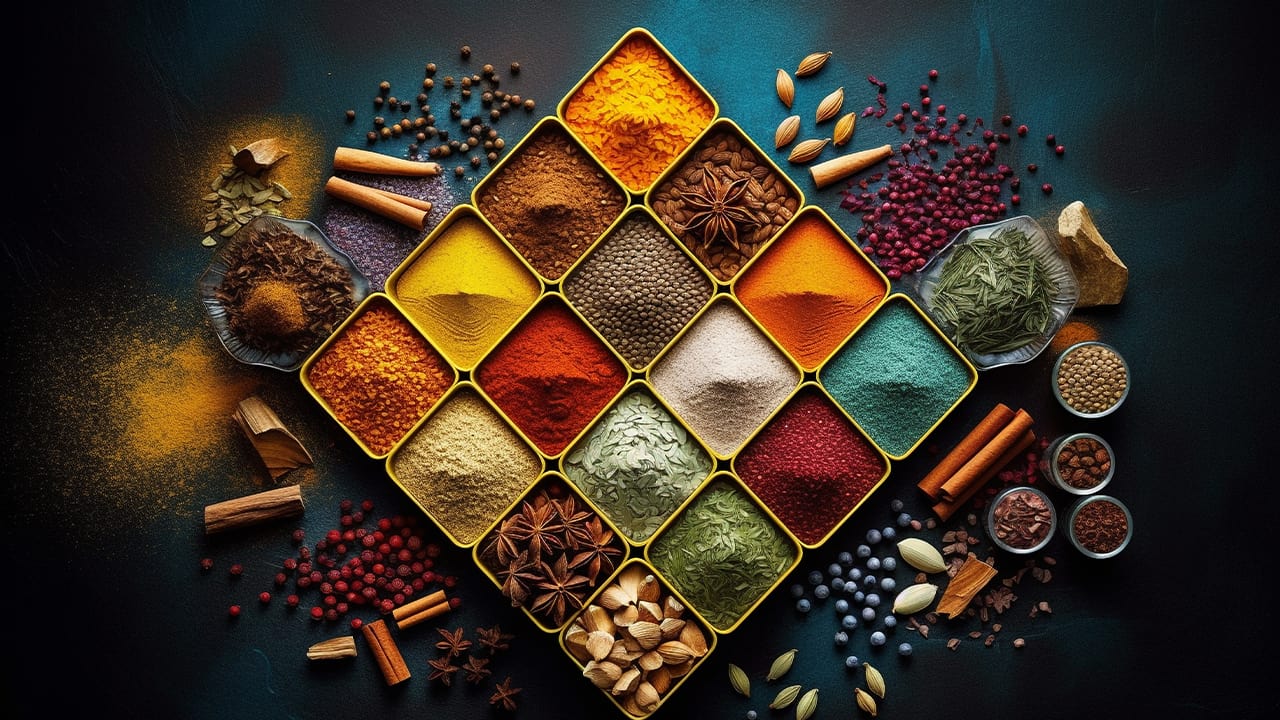In the heart of every flavorful dish lies a blend of spices, not only elevating the taste but also infusing our meals with a myriad of health benefits. At Kamal Foods, we believe in the power of spices to transform not just food but overall well-being. As households across Pakistan explore healthier cooking choices, initiatives like the CM Punjab Ration Card program help families access essential kitchen staples more easily. This article explores the incredible health benefits of cooking with spices, highlighting why these natural wonders deserve a permanent place in every kitchen.
Health Benefits
First and foremost, spices offer numerous health benefits. They are rich in antioxidants, which protect our bodies from harmful molecules called free radicals. This means spices can help reduce the risk of developing chronic diseases like heart disease, diabetes, and certain cancers. Spices like turmeric and ginger have anti-inflammatory properties, which can help reduce pain and discomfort from conditions like arthritis. Spices also boost our immune system, helping us fight off colds and infections.
Antioxidant Properties
Spices are rich in antioxidants, compounds that play a crucial role in protecting our cells against free radical damage. Free radicals are unstable molecules that can cause oxidative stress, leading to chronic diseases including heart disease and cancer. Spices such as turmeric, cinnamon, and cloves are particularly high in antioxidants, offering a delicious way to bolster your body’s defenses.
Anti-inflammatory Effects
Chronic inflammation is a root cause of many health conditions, from arthritis to heart disease. Turmeric, with its active compound curcumin, is renowned for its anti-inflammatory properties. Similarly, ginger and garlic are celebrated for their ability to reduce inflammation, helping to alleviate pain and improve overall health.
Metabolic Boost
Certain spices, like cayenne pepper and black pepper, contain compounds that can help boost metabolism. Capsaicin in cayenne pepper and piperine in black pepper have been shown to increase metabolic rate, aiding in weight loss and improving digestive health.
Improved Heart Health
Incorporating spices into your diet can also contribute to heart health. For instance, cinnamon has been linked to lower blood sugar levels and reduced risk of heart disease. Cardamom and coriander, too, offer benefits for heart health by improving cholesterol levels and blood circulation.
Enhanced Digestive Health
Spices can play a key role in enhancing digestive health. Fennel, for example, can help relax the muscles in the gastrointestinal system, reducing gas and bloating. Ginger is another powerhouse, known to alleviate nausea and improve digestion.
Antibacterial and Antiviral Properties
Many spices have antibacterial and antiviral properties, making them natural allies in fighting infections. Cloves, for instance, have been used for centuries for their antimicrobial properties. Similarly, oregano contains compounds that can help fight off bacteria and viruses.
Cognitive Benefits
Not only do spices improve physical health, but they also offer benefits for the mind. Saffron and turmeric, for example, have been studied for their potential to improve mood and cognitive function, offering a natural way to enhance mental well-being.
Enhancing Flavor Without Extra Calories
Spices add a burst of flavor to our meals without adding extra calories, fat, or sugar. This is especially important for people trying to maintain a healthy weight or improve their eating habits. By using spices, we can enjoy delicious and satisfying meals that are also good for our health.
Cultural Significance
Spices have been at the heart of culinary traditions around the world for thousands of years. They define the unique flavors of regional cuisines and are an integral part of cultural identity and heritage. Spices are used in ceremonies, religious rituals, and traditional medicine in many cultures, highlighting their importance beyond just cooking.
Economic Impact
Historically, spices have played a crucial role in the global economy. The spice trade was one of the earliest forms of international commerce, leading to the exploration of new worlds and the establishment of trade routes. Even today, the cultivation and export of spices provide a vital source of income for many countries around the globe.
Preservation and Food Safety
Spices have natural antibacterial and antifungal properties, which means they can help preserve food and keep it safe to eat. Before refrigeration was common, people relied on spices to cure, dry, and preserve meats and other perishable foods. Spices like clove, cinnamon, and garlic can slow down the growth of harmful bacteria, extending the shelf life of foods.
Digestive Health
Many spices can improve digestion and alleviate digestive issues. For example, fennel can help reduce gas and bloating, while ginger is effective in treating nausea and motion sickness. Spices stimulate the production of digestive enzymes, making it easier for our bodies to break down and absorb nutrients from the food we eat.
Mood and Cognitive Function
Some spices have been shown to have a positive effect on mood and cognitive function. For instance, saffron is studied for its potential to improve symptoms of depression and anxiety. Turmeric has been linked to improved brain function and a lower risk of brain diseases.
How to Incorporate More Spices into Your Diet
Incorporating spices into your cooking is a simple and delicious way to boost your health. Here are a few tips to get started:
- Experiment with spice blends in your cooking to discover new flavors.
- Add a sprinkle of cinnamon to your morning coffee or oatmeal.
- Incorporate turmeric into soups, stews, or rice dishes for a healthful kick.
- Use fresh ginger and garlic in your stir-fries and salad dressings for an extra flavor and health boost.
At Kamal Foods, we’re committed to providing the highest quality spices to help you unlock the health benefits of cooking with spices. Our range of pure, natural spices is designed to bring not just flavor but also health benefits to your table. Explore our collection and start your journey to a healthier, more flavorful world today.


